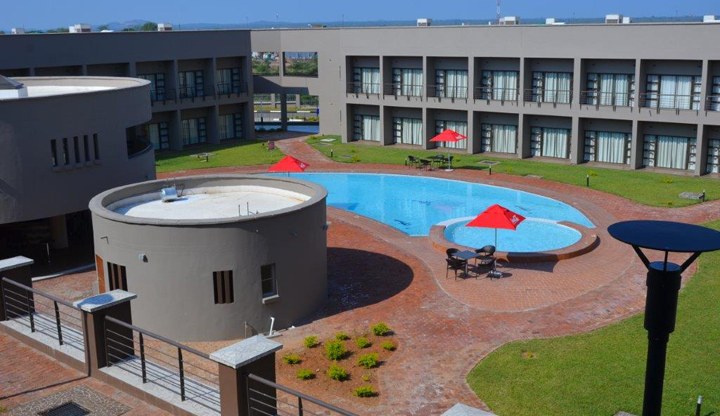The National Social Security Authority (NSSA) has reported a 68 percent decline in full-year profit for 2015 after a $93 million asset write-down relating to its Celestial office park in Harare and an ill-fated Beitbridge hotel project.
An asset write-down occurs when the book value of an overvalued asset is reduced to levels that reflect market value.
There have been concerns that the state run pension fund overpaid for the Borrowdale office park, while construction costs for the Beitbridge hotel vaulted from $17 million when the tender was floated to $49 million upon completion in 2014.
At the final cost, the 140-room hotel, planned as a four-star property, cost $350 000 per room to construct, more than an average $250 000 per room for a five-star hotel, according to some hotel construction experts.
NSSA’s new board, appointed in July 2015, has instituted a forensic audit into the statutory pensions fund’s investments, which chairman Robin Vela has described as influenced by “historically delinquent decisions.”
Financial statements for the year ended December 2015, published over the weekend, show NSSA’s profit at $32.3 million, down from $103.8 million in 2014, mainly due to the property revaluation losses.
In a statement accompanying NSSA’s financial results, Vela said his board was still in the process of verifying all assets held by the fund to ascertain their real balance sheet value.
“Informed by the outcome of that process, the board has had to be prudent in cases where stated values have been rendered out of sync with prevailing fundamentals and thus unjustifiable,” Vela said.
“Investment properties were written down by $92.9 million being mainly due to the recently purchased Celestial Park and Beitbridge Hotel and Office building, both of which are the subject of a continued forensic investigation, the results of which may have an additional financial impact in subsequent financial statements.”
In June, NSSA closed the Beitbridge hotel, which had been operated since 2014 by Rainbow Tourism Group, after as the hotelier struggled to pay rent for the loss-making property.
Continued next page
(121 VIEWS)
